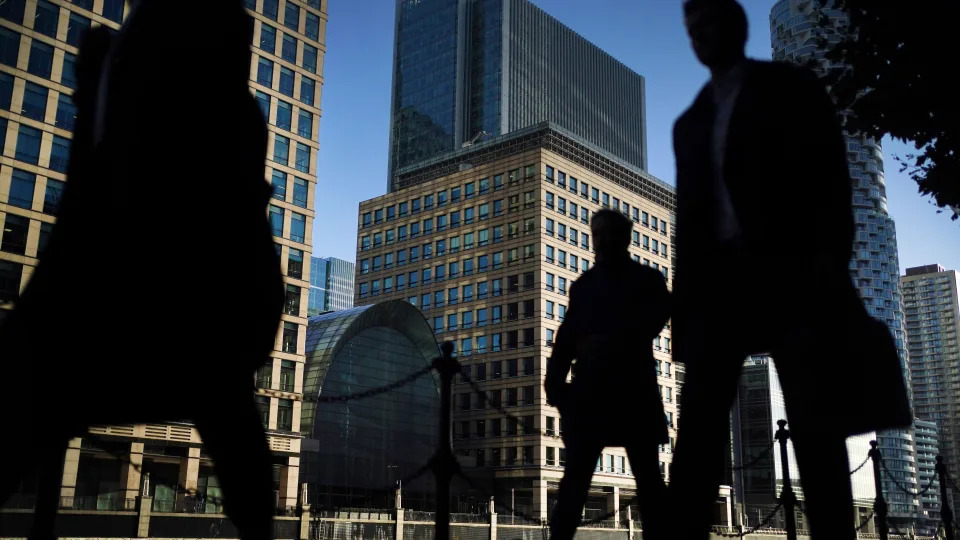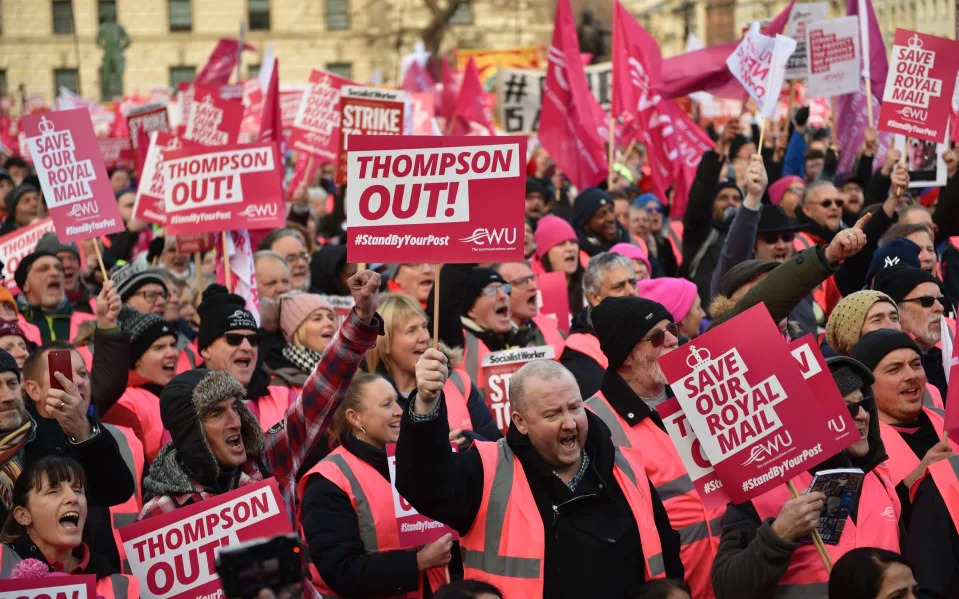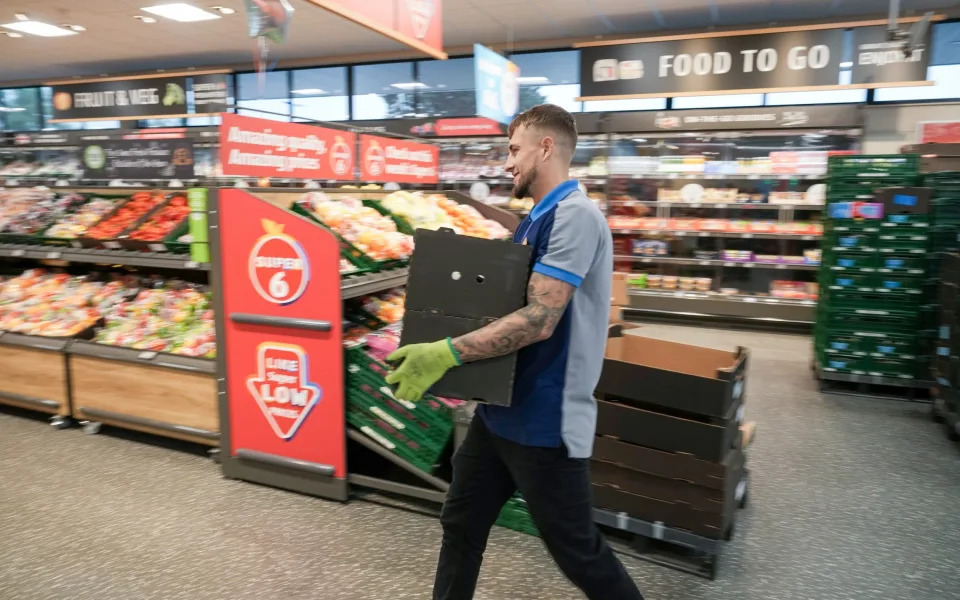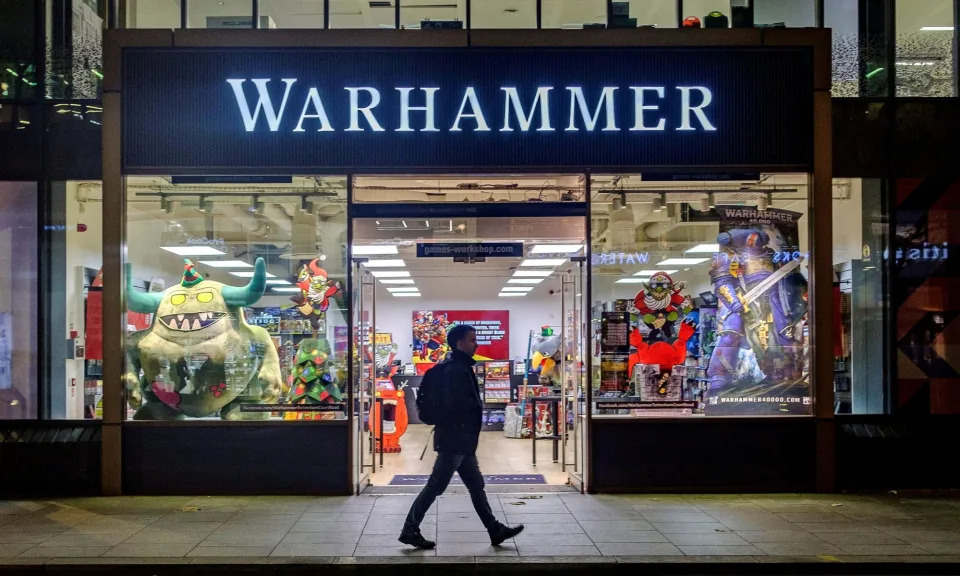RED TORIES
Labour recruits City grandees as it declares it is ‘no longer sneering at business’
Michael Bow
Thu, 7 December 2023

Labour has been on a long charm offensive within the business community to help feed into its election manifesto - Labour Party
Labour has hired 10 City grandees to advise the party as it declared it is “no longer sneering at business”.
Shadow economic secretary Tulip Siddiq MP has recruited advisers such as London Stock Exchange chief David Schwimmer, Prudential chair Baroness Shriti Vader and Bank of England director Sir Ron Kalifa, who will sit on the panel to help steer the party’s policy.
She said the group will debate issues like capital markets, competitiveness and consumer protection to help feed into the party’s election manifesto next year.
The move is designed to erase the anti-business era of Jeremy Corbyn and present Labour as a closer ally to the Square Mile.
Ms Siddiq said: “The message I have heard from the City time and time again is the need for the next Government to provide long-term stability and a clear sense of direction on policy priorities.”
She told the Financial Times that Labour has stopped “sneering at business”, having built on recent discussions with banks, insurers and asset managers.
Leader Sir Keir Starmer and shadow chancellor Rachel Reeves will unveil the panel on Friday as part of a review of the party’s approach to financial services.
The duo are in Edinburgh to mark one year since the Edinburgh Reforms, a raft of measures announced by Chancellor Jeremy Hunt to revive London’s flagging financial centre.
Key members of the 10-strong panel also include the chairs of Abrdn, Legal & General, Schroders and Barclays.
The members are sitting independently on the panel rather than as representatives of their companies.
Labour has been on a long charm offensive within the business community to help shore up its support.
Ms Reeves’ so-called scrambled eggs and smoked salmon offensive has kicked up a gear in recent months as Britain edges closer to the next election
Dozens of executives from financial institutions such as JP Morgan and Blackstone met the Labour leadership ahead of the Government’s Global Investment Summit earlier this month.
Closer to home, Labour’s plans to accelerate the rollout of banking hubs to help give people more access to cash has also triggered debate.
Many banks are shutting branches due to a fall in cash payments, although Labour’s move may complicate that process.
Other representatives on Labour’s City panel include Yorkshire Building Society chief executive Susan Allen, Amadeus Capital founder Anne Glover and the former chair of the Financial Conduct Authority Charles Randell.
Labour recruits City grandees as it declares it is ‘no longer sneering at business’
Michael Bow
Thu, 7 December 2023

Labour has been on a long charm offensive within the business community to help feed into its election manifesto - Labour Party
Labour has hired 10 City grandees to advise the party as it declared it is “no longer sneering at business”.
Shadow economic secretary Tulip Siddiq MP has recruited advisers such as London Stock Exchange chief David Schwimmer, Prudential chair Baroness Shriti Vader and Bank of England director Sir Ron Kalifa, who will sit on the panel to help steer the party’s policy.
She said the group will debate issues like capital markets, competitiveness and consumer protection to help feed into the party’s election manifesto next year.
The move is designed to erase the anti-business era of Jeremy Corbyn and present Labour as a closer ally to the Square Mile.
Ms Siddiq said: “The message I have heard from the City time and time again is the need for the next Government to provide long-term stability and a clear sense of direction on policy priorities.”
She told the Financial Times that Labour has stopped “sneering at business”, having built on recent discussions with banks, insurers and asset managers.
Leader Sir Keir Starmer and shadow chancellor Rachel Reeves will unveil the panel on Friday as part of a review of the party’s approach to financial services.
The duo are in Edinburgh to mark one year since the Edinburgh Reforms, a raft of measures announced by Chancellor Jeremy Hunt to revive London’s flagging financial centre.
Key members of the 10-strong panel also include the chairs of Abrdn, Legal & General, Schroders and Barclays.
The members are sitting independently on the panel rather than as representatives of their companies.
Labour has been on a long charm offensive within the business community to help shore up its support.
Ms Reeves’ so-called scrambled eggs and smoked salmon offensive has kicked up a gear in recent months as Britain edges closer to the next election
Dozens of executives from financial institutions such as JP Morgan and Blackstone met the Labour leadership ahead of the Government’s Global Investment Summit earlier this month.
Closer to home, Labour’s plans to accelerate the rollout of banking hubs to help give people more access to cash has also triggered debate.
Many banks are shutting branches due to a fall in cash payments, although Labour’s move may complicate that process.
Other representatives on Labour’s City panel include Yorkshire Building Society chief executive Susan Allen, Amadeus Capital founder Anne Glover and the former chair of the Financial Conduct Authority Charles Randell.
\Labour MPs oppose house building in defiance of Keir Starmer’s fight against Nimbys
Ruby Hinchliffe
Thu, 7 December 2023

keir starmer
Labour MPs are openly lobbying against more homes being built up and down England, despite Sir Keir Starmer’s pledge to side with the builders “not the blockers”.
Helen Hayes, MP for Dulwich and West Norwood, lobbied against a development in her constituency for 100pc affordable housing.
In an application for 76 homes, she responded saying the seven-storey building – set to be built on a site next to a train station – would be “too tall”.
In the West Midlands, MP for Birmingham Erdington Paulette Hamilton objected to one home being turned into seven flats. She said the plans, which would have housed people with learning disabilities, “might add to anti-social behaviour in the area”.
Anna Clarke, policy director at The Housing Forum, said “a fair bit” of the Labour opposition to new house building she’s seen has been urban MPs opposing high density areas.
She added: “This could lead to more pressure on greenbelt or other urban fringe or new town building, to avoid having to go too high on the density of cities.
“The problems will come for Labour if they win, and are actually proposing building in places where their own MPs are under pressure to oppose.”
But house building is not just a point of contention for urban constituencies.
In East England, Labour MP Alistair Strathern – who won the mid-Bedfordshire by-election in October – promised on his canvassing pamphlet “no new builds without proper infrastructure”. Just under a third of Mr Strathern’s constituency sits on the green belt.
At least 32 Labour MPs – including shadow secretaries of state Lisa Nandy, Ed Milliband and Yvette Cooper – hold seats in constituencies where half or more of land is classified as green belt, according to Telegraph analysis of data from The Countryside Charity (CPRE).

John McDonnell, Labour MP for Hayes and Harlington, said at a local level protecting the green belt is an undeniable vote-winner.
He told The Telegraph any changes to green belt policy will need to recognise “the reality” of the green belt’s role and the “scale of support there is for its protection”.
Shadow state secretary for health and social care, Wes Streeting, is MP for Ilford North – where 47.9pc of it is on the green belt.
Back in 2017, he helped locals win a campaign against Redbridge council which wanted to build 850 homes on 21 football pitches and nine cricket squares.
But Sir Keir has made his stance clear: if elected prime minister, this land won’t be protected in full at the expense of missed house building targets.
The Telegraph understands that tough rules and conditions will come with the release of any green belt land.
In both 2021-22 and 2022-23, just under 235,000 new homes were built each year – some 65,000 short of the Government’s much-debated 300,000 new builds target.
As a result, Sir Keir has taken the decision to make Labour the party of housebuilders. “We’re the builders, not the blockers,” he has said time and time again – going as far as to identify as a ‘yimby’, or ‘yes in my backyard’.
In his party conference speech, addressing “those who say ‘we don’t want Britain’s future here’”, he said: “A future must be built and that is the responsibility of the Government, otherwise we will end up in a rut. We’ll get shovels in the ground, cranes in the sky, and build Labour’s next generation of new towns”.
Robert Colvile, director of the Thatcher-founded think tank Centre for Policy Studies, said the acid test will be whether Sir Keir can overrule the objections of his own MPs.
He added: “It will become more of a problem if Labour end up winning many of the home counties seats that they’d need for a majority. The line will hold up until the election, but it is if Labour makes it into power that we’ll see whether the party actually really means it.”
In an attempt to placate both sides, Sir Keir has come up with a ‘grey belt’ classification. This would reclassify “low-quality” land on the green belt as ‘grey belt’ in order to let developers build more new homes on it.
But some fear the ‘grey belt’ idea will backfire and lead to good quality green belt land slipping through the net too. Richard Knox-Johnston, of the London Green Belt Council, said major developers already hold options on lots of green belt land.
If developers were to let that land fall to waste or make it look ‘undesirable’, they may then – under a Labour government – be able to build on it, Mr Knox-Johnston said.
Asked over email whether this was a worry, Labour MP John McDonnell simply replied: “Exactly”.

Birmingham MP Paulette Hamilton objected a home in her constituency being turned into flats citing the potential for anti-social behaviour - Ben Birchall/PA Wire
Since 2009, 140,042 homes have sprung up on land previously classified as part of the green belt, according to construction data firm Glenigan.
This has angered nimby homeowners and campaigners, who say there is no need to spoil green spaces with new construction when there are other ways targets can be met.
One reason they cite is the more than one million homes in England yet to be built but granted planning permission over the past 12 years – a statistic analysed by Channel 4’s FactCheck.
Shadow chancellor Rachel Reeves has said she will tackle nimbyism by giving residents in new development hotspots something in return. She told The Times that homeowners deserve a “sweetener” if developers build right next to them.
But Elizabeth Woodward, planning policy lead at the CPRE, said this raises “concerns” over individual payments being seen as “bribes” to support certain planning applications.
She also questioned how Labour would choose who is and isn’t impacted by new developments, adding: “Where do you draw the line? Why should Number 28 get a subsidy and not Number 29?”
Ant Breach, of think tank Centre for Cities, said since Labour “seized the house building mantle”, expectations have been raised and that much of the party’s economic strategy now depends on it – including more construction jobs and more opportunities for investment.
He continued: “When it comes to housing, ‘sweeteners’ are difficult. Objections to new development are rarely about house prices or financial compensation.
“It’s not material concerns which locals are raising in the planning process, it’s concerns about infrastructure not keeping up with building.”
Rather than £5,000 or £10,000 for 2,000 houses built near them, Mr Breach said local authorities should be incentivised to invest in amenities and new infrastructure.
A Labour Party spokesperson said: “A generation and its hopes are being blocked by a Conservative prime minister too weak to stand up to his own party, who has allowed planning permissions to collapse, pushed house building off a cliff and exacerbated a housing crisis causing misery for millions.
“The Labour Party is serious about grasping the nettle and delivering a reformed planning system where the Tories have failed, restoring the local house building targets Rishi Sunak scrapped, jump-starting planning, and delivering a housing recovery plan.
“Labour will back the builders not the blockers, and take the tough choices that deliver the homes our country desperately needs.”


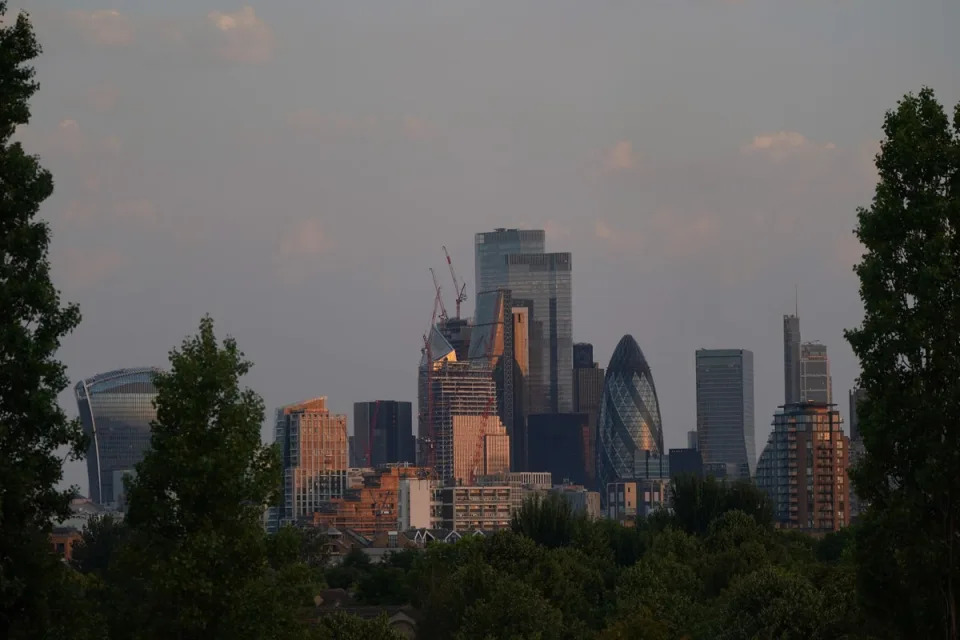

.jpg)
